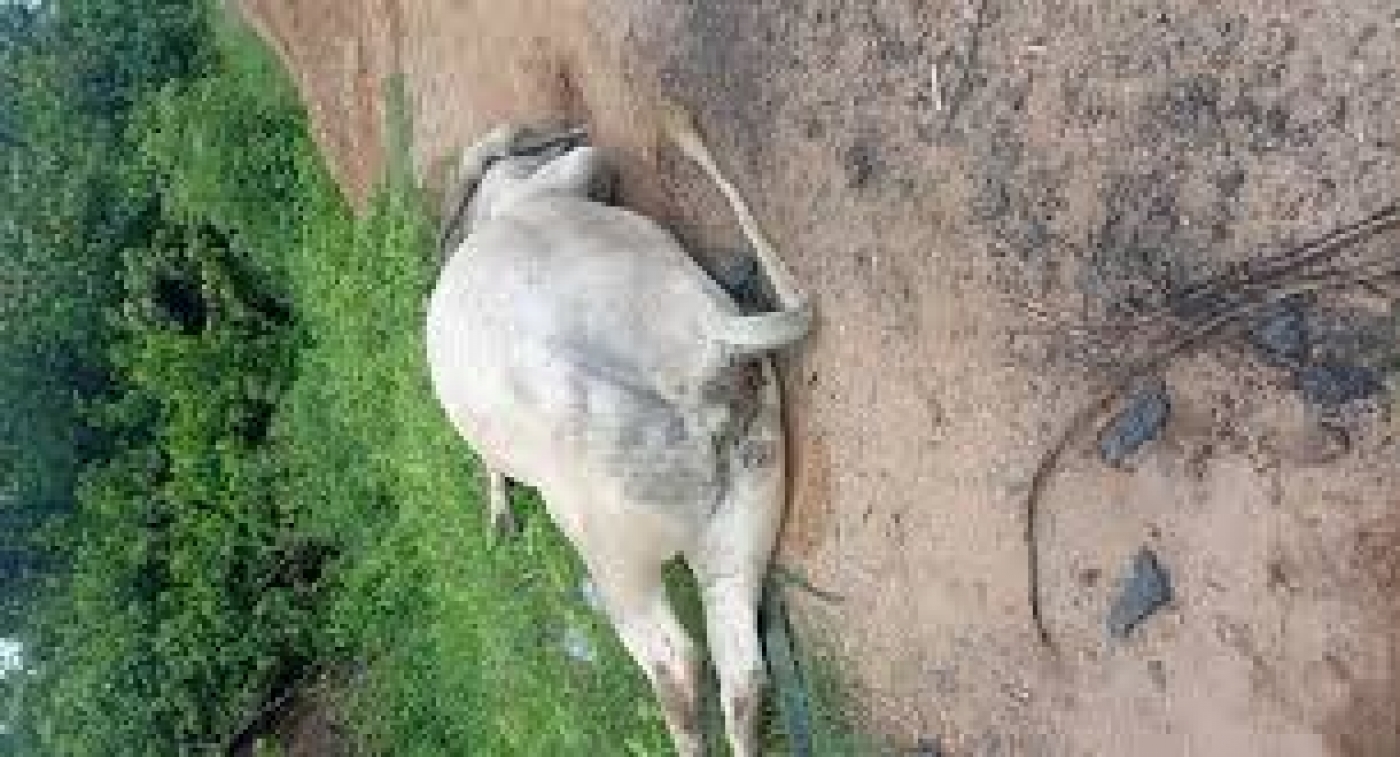It had specifically stated that the disease was widespread in northern Ghana, bordering Burkina Faso and Togo, as promised to keep Nigerians updated on developments pertaining to the disease.
According to the statement, “We are deeply concerned to announce the confirmation of an anthrax case in Niger State, Nigeria. On July 14, 2023, the Office of the Chief Veterinary Officer of Nigeria was notified of animals manifesting symptoms of a suspected case of anthrax in a farm in Suleja, Niger State.
“The case was in a multi-specie animal farm comprising of cattle, sheep and goats located at Gajiri, along Abuja-Kaduna expressway, Suleja Local Government Area, Niger State, where some of the animals had symptoms including oozing of blood from their body openings – anus, nose, eyes and ears.”
The ministry stated that a rapid response team comprising of federal and state ‘One Health Professional Team’ visited the farm to conduct preliminary investigations and collected samples from the sick animals.
“Subsequent laboratory tests by the National Veterinary Research Institute laboratory confirmed the diagnosis, marking the first recorded case of anthrax in Nigeria in recent years and after the report of an outbreak of anthrax in Northern Ghana a few weeks ago. All animals affected have died,” the ministry stated.
The statement, however, stated that the Federal Government, through the FMARD, in collaboration with the Niger State Government, had taken proactive measures to ensure the outbreak was controlled and contained quickly in Nigeria.
“This includes quarantine of the affected farm, deployment of anthrax spore vaccines to the affected and adjoining farms to vaccinate in-contact animals, and educating workers of the affected farms on symptoms, preventive measures and what to do when they encounter suspected cases.
“Plans are also underway to conduct nationwide vaccination of cattle, sheep and goats against anthrax. Surveillance of anthrax will be heightened in livestock farms, markets and abattoirs. Public awareness campaigns on anthrax will be intensified,” the FMARD stated.
The ministry encouraged all livestock owners to remain vigilant and promptly report any suspicious illness or deaths of their animals, so as to avoid contact with sick or dead animals and their products.
It urged livestock owners to exercise caution when buying animals such as cows, camels, sheep, goats, and other livestock from Nigerian states bordering Benin, Chad and Niger, as well as from Ghana and Togo via waterways.
According to the FG alert on anthrax, released in June, “The disease, which has claimed some lives, is a bacterial disease that affects both animals and man, that is a zoonotic disease. Anthrax spores are naturally found in the soil and commonly affect domestic and wild animals.
“People can get infected with anthrax spores if they come in contact with infected animals or contaminated animal products. However, anthrax is not a contagious disease, so, one cannot get it by coming in close contact with an infected person.
“Signs of anthrax are flu-like symptoms such as cough, fever, muscle aches and if not diagnosed and treated early, leads to pneumonia, severe lung problems, difficulty in breathing, shock and death.”
The government explained that being a bacterial disease, it would respond to treatment with antibiotics and supportive therapy.
“It is primarily a disease of animals but because of man’s closeness to animals, non-vaccinated animals with anthrax can easily be transmitted to man through the inhalation of anthrax spores or consumption of contaminated/infected animal products, such as hides and skin, meat or milk.
“Annual vaccinations with anthrax spore vaccines are available at National Veterinary Research Institute, Vom, Plateau State, and is the cheapest and easiest means of prevention and control of the disease in animals.
“However, infected animals cannot be vaccinated but animals at risk can be vaccinated. So in this present case, there is the need to intensify animal vaccinations along the border states of Sokoto, Kebbi, Niger, Kwara, Oyo, Ogun and Lagos, because of their proximity to Burkina Faso, Togo and Ghana,” the ministry stated.
It informed that other states within Nigeria have been equally advised to join in the vaccination exercise.
The ministry noted that infected dead animals should be buried deep into the soil along with equipment used in the burial after applying chemicals that would kill the anthrax spores.
source: healthwise.punchng







